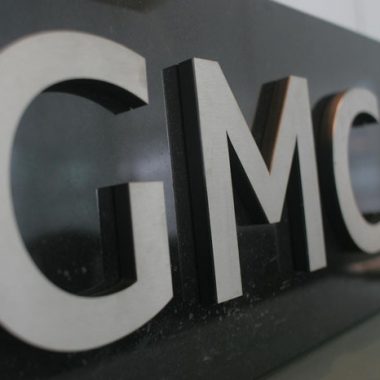Collect feedback following every GP-patient interaction, says GMC report

Patients should be able to give feedback that goes straight into their GP’s revalidation portfolio after every interaction, the GMC’s lead on revalidation reform has suggested.
Sir Keith Pearson, the GMC’s revalidation programme board chair, said plans to pre-populate patient feedback when a GP goes to revalidate ‘could include’ using social media sources.
Other options could include patients filling in a questionnaire in the waiting room following every consultation, he added.
Sir Keith said this comes as patients find current mechanisms for gathering patient feedback via questionnaires every five years to not be timely enough, and they fear their care could suffer if they express negative opinions.
Sir Keith said in his report, which looks at how revalidation can be improved in the next five years: ‘I am interested in the concept of “real time” feedback; feedback that could take place following any or all interactions a patient has with a doctor…
‘Patients have said that this would be more convenient and would make the process less daunting for them.’
The report also carried recommendations to reduce the workload burden on GPs associated with revalidation.
It said: ‘[Objections] centre in particular on the cost-benefit balance: the time they spend on activities related to revalidation versus the benefits they perceive for themselves and patients.’
Amid suggestions on how to tackle the problem, Sir Keith says the GMC ‘should continue its work with the CQC and NHSE in england to reduce workload and duplication for GPs, and work with relevant organisations in Northern Ireland, Scotland and Wales to identify and respond to any similar issues if they emerge’.
He also recommends IT systems are upgraded to make the process simpler for GPs to go through, and that the GMC ensures there is better support available for locum doctors to revalidate.
Other recommendations in the report include:
- Changing the name of revalidation to relicensing, which he thinks would be more ‘meaningful’ to patients;
- Earlier revalidation for newly-licensed GPs and GPs coming from overseas;
- Tracking impact of revalidation on patient care and safety;
- Reviewing revalidation requirements to ensure managers are not using it to deliver local performance targets;
- Reviewing how responsible officer conflicts of interest are managed.
The GMC’s chief executive Charlie Massey welcomed the ‘well-evidenced and balanced’ report and said he was ‘determined to take forward all of Sir Keith’s recommendations with vigour’.
BMA chair Dr Mark Porter said: ‘While many of the recommendations will be broadly welcomed by doctors, it not yet clear how these will be turned into a reality.
‘The BMA will continue to press the GMC and other bodies about the actions needed to relieve the unnecessary burden that revalidation can sometimes place on doctors, in order to ensure the process delivers for patients, doctors and the NHS.’
Pulse July survey
Take our July 2025 survey to potentially win £1.000 worth of tokens











